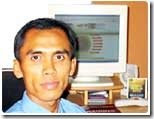Learn how to adopt a situational leadership style that generates heightened performance and improved productivity. Does your organization lack passion, energy, self-reliance and drive? If so, the technique of situational leadership has the answers that will take your managers and your company to the head of the pack. The Situational Leadership Workshop will help you apply the most effective leadership style in any given situation. How You Will Benefit - Improve communication and become a more trusted and credible leader
- Learn how to use situational leadership to achieve greater productivity by infusing energy, self-reliance and drive within your employees
- Create a collaborative work environment to achieve faster sustainable results
- Increase your effectiveness in setting goals, providing clear direction, listening, observing, monitoring and giving feedback
- Retain your most talented employees by being more responsive to their development needs
What You Will Cover The Essence of Situational Leadership - A description of—and introduction to—the principles, purposes and systems within Situational Leadership
- How to get the most out of your workshop experience
Leadership for the Future - Exploring the importance of flexibility, adaptability and how to manage diversity and change
- Beliefs and building blocks to help you understand the concept of “no best style”
- Why leadership is situational
Diagnosis: The First Skill of Situational Leadership - Assessing an individual’s competence and commitment levels to determine how to build motivation, confidence and productivity
- Understanding the need for a specific leadership style based on the individual’s needs in any given situation
Flexibility: The Second Skill of Situational Leadership - Becoming comfortable with a variety of leadership styles
- Matching your leadership style to your people's and situation’s need
Partnering for Performance: The Third Skill of Situational Leadership - How to empower people to contribute their best to your organization’s success
- Exploring new ways to open up communication and reach consensus with others
Taking the Right Action - Transferring your new awareness and situational leadership skills into your work relationships and leadership responsibilities
- Practice…practice…practice
Who Should Attend Individuals in leadership roles, including executives, managers at all levels, project managers, team leaders and supervisors.
Extended Training Description Situational Leadership—Beliefs and Building Blocks - Develop a Common Vocabulary for Leadership
- Learn and Be Able to Explain Why There Is No Best Leadership Style
- Learn the Three Skills of a Situational Leader: Diagnosis, Flexibility, and Partnering for Performance
- Discuss the Core Beliefs and Values Underlying the Situational Leadership Model
- Understand the Positive Outcomes of a Match and the Negative Consequences of Oversupervision and Undersupervision on Performance and Development
- Develop an Action Plan for Becoming a Situational Leader
Diagnosis—The First Skill of a Situational Leader - Define Development Level as a Measure of a Person’s Competence and Commitment on a Specific Goal or Task
- Identify the Characteristics and Needs of Others at the D1, D2, D3, and D4 Levels of Development
- Develop Skills in Successfully Diagnosing Development Level
Flexibility—The Second Skill of a Situational Leader - Identify Directive and Supportive Behaviors
- Describe the Four Leadership Styles: Directing, Coaching, Supporting, and Delegating
- Learn What a Leader Does in All Four Styles
- Be Able to Start a Conversation in Each of the Four Styles
- Describe Differences between the Four Leadership Styles
- Learn How Flexible You Are and Which of the Four Styles You Are Most Comfortable Using
- Identify the Skills You Need in Order to Adapt Your Leadership Style from One Situation to Another
The Match - Match Leadership Style to Development Level
- Learn How Effective You Are in Diagnosing Development Level and Choosing the Appropriate Leadership Style
- Explain the Negative Impact of Oversupervision and Undersupervision on Others’ Performance and Morale
- Practice Diagnosing Development Level and Using the Four Leadership Styles
Partnering for Performance and SL Skill Practice
The Match and Mismatch Activity
FOCUS TRACO INDONESIA Management & Technical Training Course Seminar Provider Download 2009 FOCUS Training Catalog |  |
Instructor
Schedule
| | Desember 14-15, 2009 | | | 2 days |
Venue
| | Novotel Coralia Hotel | | | Bogor |
Tuition Fee
| Rp. | 4.800.000,- | | | per participant, excluding accommodation & tax. |
Registration
| | Send by email -or- fax to: | PT. FOCUS TRACO INDONESIA
Wisma Pakuan, Jl. Pakuan 12
BOGOR – 16143
|


Tidak ada komentar:
Posting Komentar